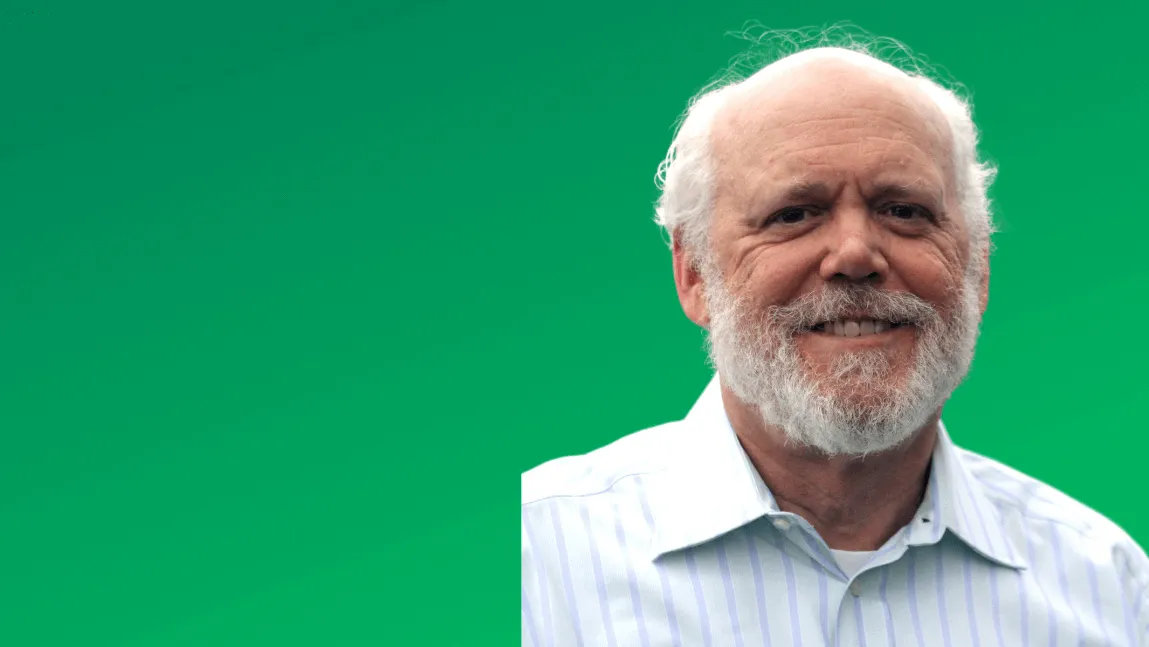Bob Page didn’t follow a traditional journalism path that was more feasible back in the day. That is, collecting clips, building rapport from newspaper to newspaper and rising up in the ranks. While he does have an undergrad degree in journalism, Page also earned an MBA.
Page’s first job out of college was as a reporter with the Dallas Bureau of United Press International. Then, he left for his hometown of Wichita, Kansas to work as the news agency’s bureau manager there.
“I covered a lot of interesting stories, a lot of airline catastrophes, fires, wheat harvests, Vietnamese immigrants in western Kansas,” Page said.
Journalism wasn’t Page’s only love, though. He’d also studied Italian while at Southern Methodist University in Dallas, Texas, where he earned his bachelor’s degree.
“I went to Italy for a year and just studied Italian [at the University of Perugia] and then I came back and UPI has gone through a series of bankruptcies and so I decided not to go back to UPI,” Page said.
Instead, he got married in North Carolina and started a job as the director of media relations at Davidson College in Davidson, North Carolina.
“I told stories for Davidson College for several years and I really enjoyed that. After a few years, several of my friends from UPI had gone to work for IBM in their communications department either as media relations reps or internal communications people,” Page said.
He followed his friends’ paths, securing a job as IBM’s corporate communications manager in Charlotte.
“It was very much a storytelling job in that our content universe was the IBM corporation and its customers and the communities in which it worked,” Page said. “That gave me a long career.” Indeed, Page worked at IBM for 17 years.
Page moved over to Lenovo when the Chinese technology company bought IBM’s PC division.
“That [job] was also fascinating because the world in which we were telling stories was a global one, rather than just a North American one. Many of the stories that I focused on were about sports events, either motorsports, basketball, the NBA, most of the work was actually focused on the Olympic Games,” he said.
Page is the first one to acknowledge that much of his career hasn’t been in mainstream journalism. But this doesn’t take away from his knowledge of the field and how to tell a good story.
“What I’ve picked up, I think, in those couple of decades working at IBM and Lenovo is a deep appreciation of the kind of work that journalists do around the world and what kinds of stories are fascinating to journalists,” Page said. “That’s the work that I do with Queens.”
Queens, or Queens University of Charlotte in North Carolina, is where Page has been for the past 12 years, most recently as the director of student media since July 2022. The service gives students an opportunity to write for twelve local news organizations in the community. Page is one of the original founders of the Queens University News Service, which began in 2021.
As Page and others at the university talked with editors and publishers in the Charlotte area, it became clear to them that their students could cover story beats (such as religion, art and nonprofit organizations) where local media outlets didn’t have the bandwidth.
“We developed this idea of the news service where we create content and distribute it and if editors want to publish it then they do that,” Page said.
There are several classes where students can create journalism for the news service, such as a practicum class, advanced reporting and editing classes and video production classes.
“In any one of those classes, there may be some kind of a community issue or story that results in a student media project,” Page said. He is responsible for ensuring the standards of these projects meet editor expectations.
Simultaneously, other faculty coach students on finding sources, building relationships with sources and reporting, writing and editing stories. In short, how to be a journalist.
In the past, the service operated on the hope that editors would be interested in publishing the students’ stories. This has worked in 90% of cases, according to Page. However, in the past year, the service has retooled its approach.
“Our relationships with editors are fairly strong so before we even begin to invest the time into pursuing stories, we usually verify with the editors that they want it,” Page said. “At this point, like 100% of what we distribute is published.”
But it’s not all success. Recruiting students to the service is difficult, according to Page.
“Students are extremely busy and at Queens, about one-third are athletes…when one-third of your student body is athletes and they have practices every afternoon, weight-lifting requirements and so forth, a lot of their time is occupied,” he said.
When asked how Queens is countering this challenge, Page said one of the tactics the service focuses on is posting the names and faces of student journalists on social media.
“It’s not only celebrating the story itself but also the student producers who created it,” Page said. “That seems to work fairly effectively.”
